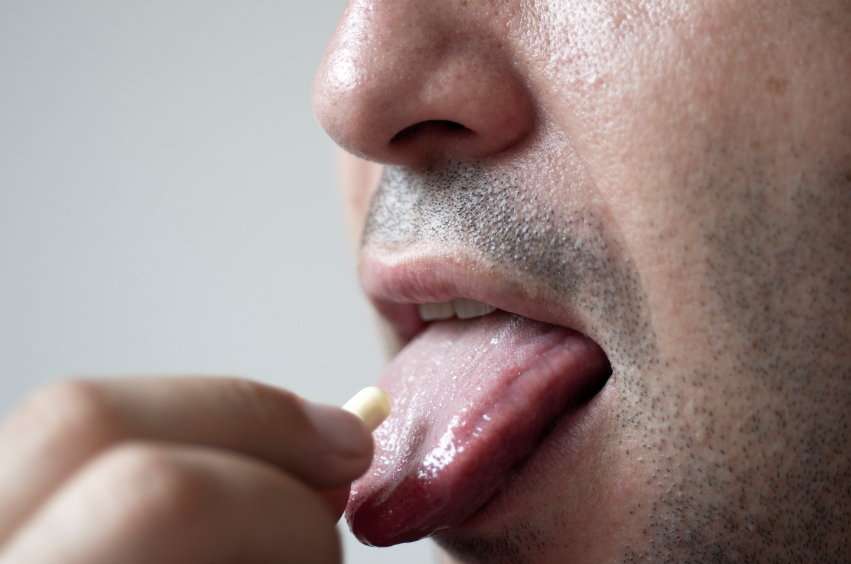Probiotic as an adjunct to an antidepressant
Viktoriya L. Nikolova, et al reported in JAMA Psychiatry (2023) that the probiotic Bio-Kult Advanced; ADM Protexin was more effective than placebo as an adjunct to antidepressants for depression and anxiety.
Specific Probiotics Reduce Re-Hospitalizations for Bipolar Disorder
In a 2018 article published in the journal Bipolar Disorders, researcher Faith Dickerson and colleagues reported that in a small study of 66 people who had been hospitalized for mania, taking specific probiotic supplements upon their release reduced re-hospitalizations compared to taking placebo.
The study followed patients for 24 weeks after their hospitalization. They were randomized to receive either the combination of Lactobacillus rhamnosus strain GG and Bifidobacterium animalis subsp. lactis strain Bb12 or placebo in addition to their regular medications. While 17 of the 33 participants in the placebo group (51.5%) had at least one re-hospitalization during the study period, only eight (24.2%) of the participants taking probiotics had a re-hospitalization. The duration of the re-hospitalizations was also shorter for those taking probiotics (2.8 days on average versus 8.3 days for those taking placebo).
In a personal communication to this editor (Robert M. Post), Chris Aiken, Instructor in Clinical Psychiatry at Wake Forest University School of Medicine, who was not involved in the study, provided some clarifying details to this editor about the use of probiotics to reduce manic relapse. Aiken explained, “Apparently, it’s important to get both the right species (e.g. Bifidobacterium lactis) and the right strain (e.g. Bb-12) in choosing a probiotic. The study mentions that one of the strains (Bb-12) is patented and only available in Europe, but it has been licensed to a few U.S. companies.
“I found two products that contain the exact strains in the study and wrote this up for patients: In [the] study [noted above], a probiotic capsule containing Bifidobacterium lactis Bb-12 and Lactobacillus rhamnosus GG lowered the risk of psychiatric hospitalization threefold. [Both] strains are available in the supplement Emergen-C and in a liquid probiotic designed for infants, Culturelle Baby Grow and Thrive. The infant serving would suffice for adults as well. You could also get the two strains by combining two separate probiotic capsules: Align Daily Immune Support and Culturelle Digestive Health Daily Priobiotic.”
Editor’s Note: We are grateful to Dr. Aiken for this added information. We also found that USANA probiotic also contains both strains used in the study. Recent research has found more and more connections between inflammatory processes and mental health. This study contributes to our understanding of the connection between gut health and the brain.
Probiotics May Improve Depression As Well As IBS
 A pilot study of people with irritable bowel syndrome (IBS) suggests that taking a probiotic nutritional supplement can improve depression as well as gastrointestinal upset.
A pilot study of people with irritable bowel syndrome (IBS) suggests that taking a probiotic nutritional supplement can improve depression as well as gastrointestinal upset.
In the 2017 study published in the journal Gastroenterology, researcher Maria Pinto Sanchez and colleagues at the Farncombe Family Digestive Health Research Institute found that when those with IBS took a probiotic, their co-occurring depression improved more than it did in people with IBS who took a placebo.
Senior author Premysl Bercik suggested the study confirms that the microbiota environment in the gut affects what goes on in the brain, opening new avenues for the treatment of psychiatric diseases.
The study included 44 adults with IBS who also had mild to moderate anxiety and depression. For 10 weeks, half received a daily dose of the probiotic Bifidobacterium longum NCC3001, while the others received placebo.
After 6 weeks, 64% of the probiotic group saw improvement in their depression, compared to 32% of the placebo group. Functional magnetic resonance imaging (fMRI) showed brain changes associated with the improvement in mood.
The researchers are planning larger trials of probiotics.


